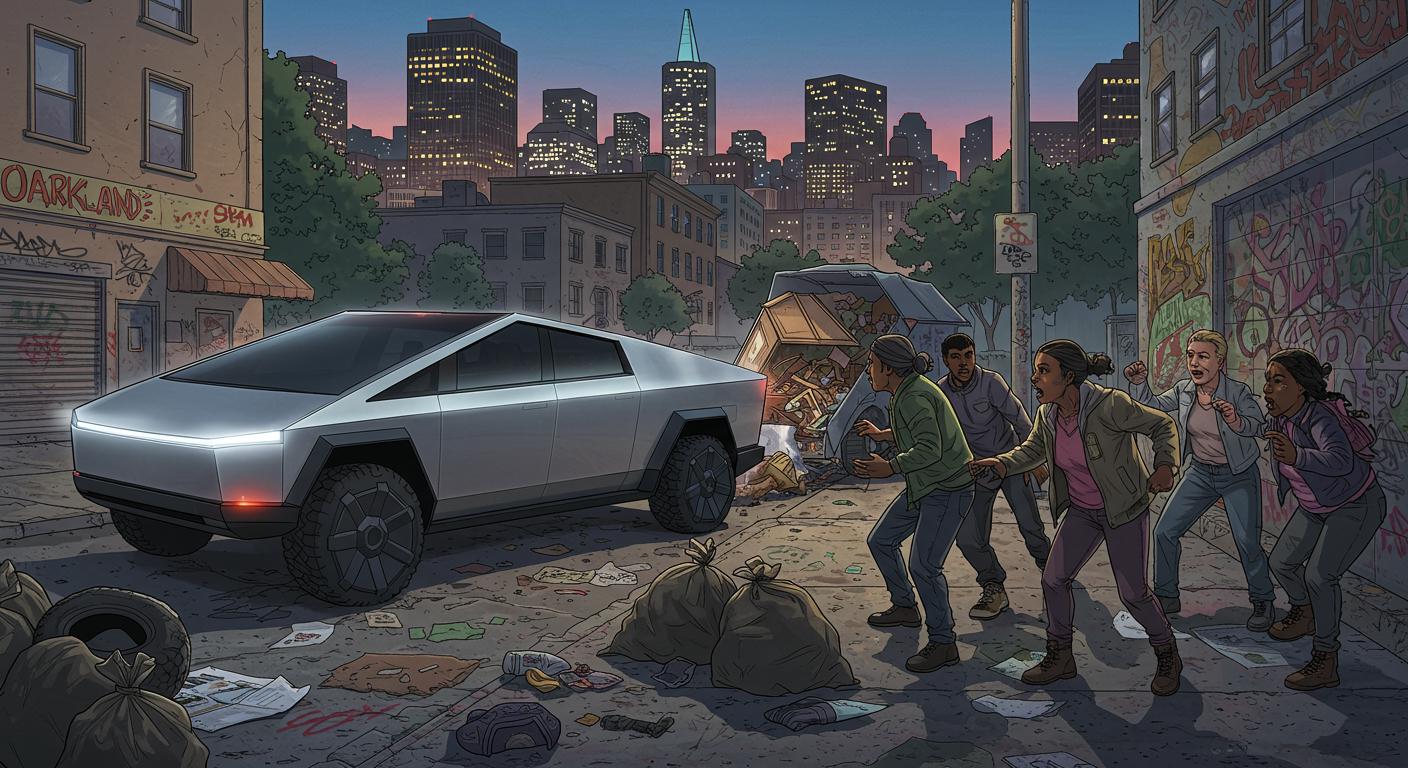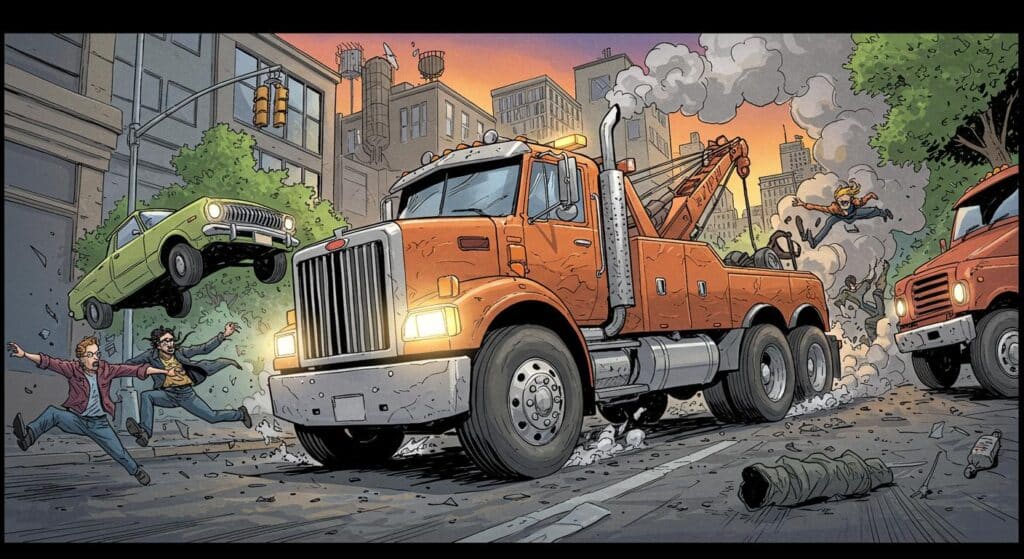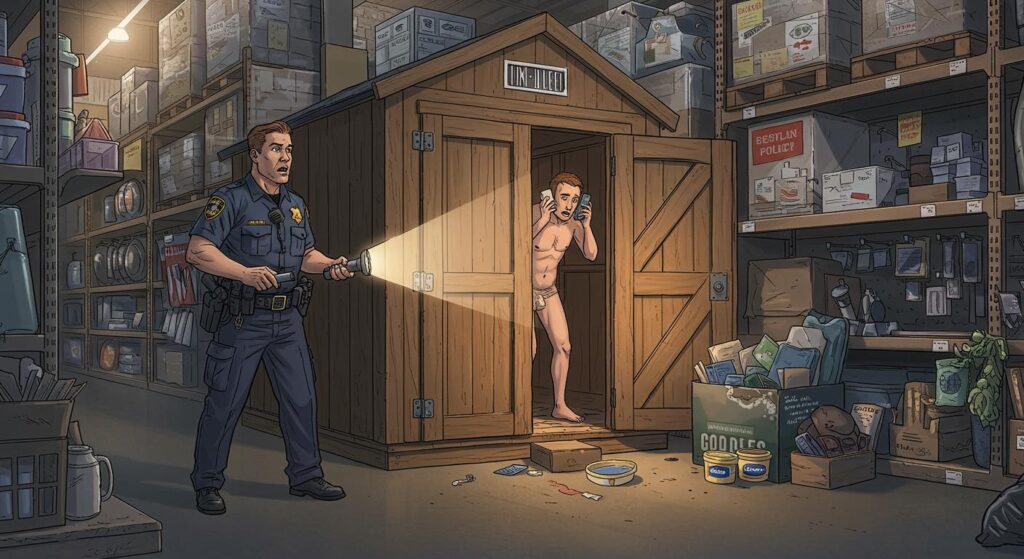There’s something uniquely 2025 about a stainless-steel Tesla Cybertruck, still rare enough to attract curious looks, rolling up to Oakland’s Campbell Street only to unload a heap of construction debris in broad daylight. The moment, as documented in a detailed CBS San Francisco report, has sparked both outrage and disbelief among residents already all too familiar with the sight of illegally dumped trash cluttering the neighborhood.
The Scene: Futurism Meets Furniture Piles
According to CBS San Francisco, Andrea Taylor was driving home around 5:45 p.m. when she encountered a man standing in the back of a 2025 Cybertruck, dumping what appeared to be leftover hardwood flooring onto the street. Not missing a beat, Taylor began filming, confronting the man with a mix of disappointment and exasperation. Another passerby, seemingly on the same wavelength, also captured the incident on video. Taylor said what really caught her attention was the incongruity of someone with a new Cybertruck—whose sticker price, according to the report, suggests a buyer not strapped for disposal fees—illegally tossing waste instead of taking it to the dump.
“If they can afford that vehicle, they can afford to go to the dump,” Taylor remarked to CBS San Francisco, cutting straight to the core of the neighborhood’s frustration.
Oakland’s Ongoing Battle with Illegal Dumping
As the outlet documents, Campbell Street is no stranger to dumped mattresses, broken furniture, and construction leftovers—part of a persistent issue that cost Oakland Public Works considerable effort. City data cited in the CBS San Francisco report shows that in the 2021–2022 fiscal year alone, crews collected an astonishing 17,000 tons of illegally dumped trash. The problem shows no sign of waning; in 2023, the city issued at least 405 citations for illegal dumping, including 42 based on video evidence.
Local residents, like Duy Tran, manager at Max’s Gym, and Suzette Bradley, a gym member who frequently witnesses new piles of waste, described the act as a blatant show of “entitlement and disrespect.” “He doesn’t think twice about it. He doesn’t feel like he’s doing anything wrong. Broad daylight, all of that,” Bradley told the outlet, underscoring how routine these incidents have become.
City spokesperson Sean Maher confirmed to CBS San Francisco that the Environmental Enforcement Team is now investigating the incident. Taylor provided both the license plate and VIN to the city, and officials even posted a still from her video on the city’s Facebook page to encourage others to document and report such violations.
When the Tech Boom Delivers Trash
For those keeping score, a first-time fine in Oakland for illegal dumping can reach $750. Yet, many residents voiced to CBS San Francisco that monetary consequences alone aren’t enough to deter this kind of behavior. As Tran put it, “That’s ridiculous. It’s disheartening to see. Do the right thing. Take care of your own garbage.” Taylor and her neighbors, cited by the station, are advocating for stricter penalties—mandatory community service, for example, to encourage real behavioral change.
“What we want is behavior change. And to me, engaging in that sort of thing would be a better push in that direction,” Taylor emphasized, pointing to the need for consequences beyond a simple fine.
Adding to the nearly comic irony, the CBS report highlights that Oakland residents—including both renters and homeowners—are eligible for at least one bulky waste pickup per year, sometimes two. It’s a free service, and all it takes is a call to Waste Management. The notion that a Cybertruck driver would opt for illegal dumping, given such accessible legal alternatives, is perhaps the most bewildering part.
A Strange Status Update
Is this the final, absurd step in Oakland’s struggle with dumping: high-end electric trucks joining the rotating cast of offenders? Or does it simply prove that the technology itself is neutral—it’s the behavior behind the wheel (or on the truck bed) that remains frustratingly familiar?
The outlet also notes residents’ requests for the city to impose community-minded penalties in hopes of breaking the endless cycle. Whether that hope is in vain remains to be seen.
Every so often, history tosses us a scene that feels straight from fiction: futuristic vehicles making deposits not to the future, but to the nearest curb. Perhaps, as this episode reminds us, some habits are even tougher to break than 3/4-inch hardwood planks.







